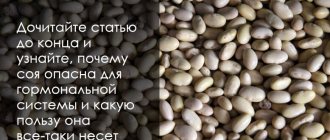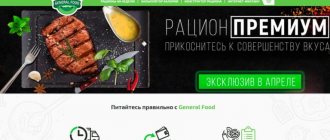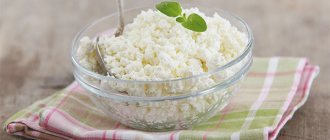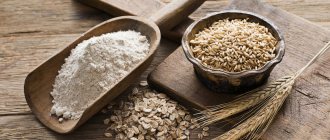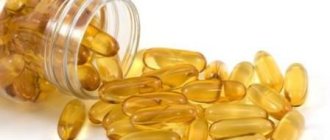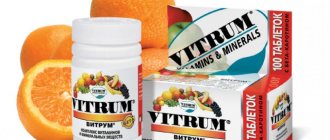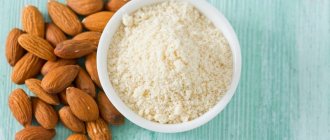Organizing nutrition for young athletes is not an easy task. Parents so want their child to grow up healthy, but under high loads the growing body clearly does not receive enough of everything it needs. Today, in sports nutrition stores there is such a variety of different drugs, additives, and dietary supplements that you simply get lost. And a logical question immediately arises: is all this possible for children? Today we will talk about how old you can take protein.
About protein
When it comes to protein and its “harm” to the body, you want to “scream” about the stupidity of this statement. Protein contains many different amino acids that are necessary for building a healthy body. We are made of meat, for which amino acids are the “building blocks”, the basis for growth.
A child's body is special. Many people know that proteins tend to break down, because they are difficult to classify as stable compounds. Moreover, in children and adolescents, the process of destruction occurs much more slowly than the process of creating protein cells. Due to this, the body grows and develops. In adults, the opposite is true - protein destruction occurs faster than its creation. As a result, we grow old and die.
What does it mean? Protein is the basic element for life. It must be obtained from food, and in case of deficiency, from sports nutrition. There is nothing reprehensible in this. At the same time, adults need much more protein than teenagers, whose breakdown process is not yet so active.
Why do they drink protein at all, if it’s protein?
Indeed. Why not just eat eggs, chicken, milk, cottage cheese, kefir, pork, etc.? Are there really few foods that contain sufficient amounts of protein? The answer is incredibly simple.
IT IS VERY COMFORTABLE! I think you can imagine the rhythm of life of a modern person, especially one who exercises. Work–>gym–>shop–>home–>preparing food for the next day–>sleep.
And now the question. Will it always be possible to stick to this scheme? Can a person constantly behave like a robot day after day? I will answer you as a person who almost always lives this way. But the key word here is: “ALMOST!”
It happens that you simply don’t have time to prepare food for yourself the next day. Could this be the case? Certainly! Then you have to have breakfast, as always, at home, but there will be a problem with other meals. It’s at times like these that I drink protein shakes between meals! After all, IT IS CONVENIENT! Just pour a couple of scoops of protein into 300-400 ml of milk and you're done! Without this, I would simply be forced to skip several meals.
This is simply unacceptable, for example, for those who already have difficulty gaining muscle mass.
It's not just that. If you have the opportunity to eat and replenish the required amount of protein only with “regular” foods (meat, milk, eggs, etc.), then you don’t need any cans labeled “Protein”, for which I congratulate you! You make very good money. After all, not everyone can afford it.
HOW MUCH PROTEIN DOES AN ADULT NEED?
Per day, an adult who exercises in the gym or is engaged in heavy physical labor requires about 1.8-2.2 g of protein per 1 kg of body weight.
Let's just take an average of 2g of protein for a guy who weighs 80kg. Accordingly, he needs about 160 g of protein per day. Do you think this is a lot or a little?
Let's just do a little math. 1 egg contains 6-7 g of protein. There is approximately 30 g in a liter of milk. In 200 g of meat there is about 35 g of protein. As you can see, for a teenager (and I will also classify them as adults), achieving the daily protein requirement is not such an easy task, both physically and economically.
WHAT IF YOU DON'T GET THE RIGHT AMOUNT OF PROTEIN PER DAY?
We have already discussed this topic a bit above. Protein is a building material for our body. Especially during intense workouts in the gym, our body requires a sufficient amount of protein.
After all, he needs to restore tissue damaged during training, build muscle cells, etc. When there is no building material, these processes slow down. And when there is not enough protein for a long time, the body begins to make up for its deficiency from its own reserves. It turns out that you train practically “idle” until you “catch” overtraining.
Even if a person does not exercise, in most cases he does not receive the required amount of protein to support all the metabolic processes of the body and, most likely, will develop some of the health problems that we discussed above. In such cases, it becomes very convenient and rational to take protein between main meals.
Misconceptions
Many people believe that protein is a chemical product and therefore harmful. This approach is erroneous and baseless. In fact, protein sports nutrition is made exclusively from natural products - there are no “chemicals” in it. But we have plenty of it in mayonnaise, sauces, canned food and other products on our table. Therefore, the question of whether you should drink protein disappears by itself. If you need it to achieve high athletic results or due to an acute shortage in the body, then why not.
https://youtu.be/Gu6sm0Gkbqc
Protein for children: benefit or harm
Proteins are very important for the development and growth of children. If they enter the body in sufficient quantities, the children lead an active lifestyle, they are cheerful and master the school curriculum well, play sports, and maintain a fairly busy and intense schedule of activities.
But it is not always wise to give children protein to fill their bodies with protein. Most boys and girls get enough protein from regular food, as long as their menu is varied and rich in vitamins.
There is a lot of protein in the following foods:
- lean red meat and chicken;
- seafood and sea fish;
- dairy products cottage cheese, milk, kefir;
- eggs, including quail;
- legumes and grains, soy products;
- nuts, nut butter, etc.
These and some other products can cover your daily protein requirement. It turns out that children don’t really need protein. It is possible that protein in a normal diet will not be enough if the son or daughter plays sports or leads an active lifestyle. But still, before giving your children protein powders, consult your pediatrician and trainer.
Avoid overdosing on proteins. Its excessive consumption negatively affects the kidneys and other organs. If you drink protein without the advice of a specialist, you can harm the child’s health: interruptions in the functioning of the stomach and intestines, weakness, and allergic reactions occur.
Research
Many studies have been conducted on the harm of protein and its effect on the body of adolescents. No negative effects were found. There is only one danger, but it has a psychological basis. A teenager who started with “weak” supplements may eventually switch to more dangerous ones, for example, steroids.
The problem is that the child is too susceptible to what is shown on TV. He wants to be the most beautiful, to arouse the envy of his peers, and girls like him. For this reason, he may take dangerous drugs without even thinking about their negative effects.
Analyzing reviews
Alexander, 47 years old, 33 years in sports:
“I have a thin physique, even at the start of my sports career I began to take baby food to gain muscle mass, and over the years I have not changed my choice, because I am satisfied with the result and the cost.”
Baby food instead of protein
Max, 28 years old:
“On the advice of a gym buddy, I bought the mixture to increase muscle mass. Sorry, I started to feel sick. It’s better to buy protein or amino acids, which contain significantly less carbohydrates than baby formula, and the results are achieved faster and without surprises.”
According to reviews from both experienced bodybuilders and beginners who tried to find a replacement for sports nutrition that promotes rapid muscle growth, it can be said that the decisive factor in attempting such a replacement is the pricing policy and illiteracy in the matter of the quantitative composition of the active components. After consuming powdered milk, the majority of respondents were dissatisfied with the results and also noted disturbances in the functioning of the digestive system.
Powdered infant formula, which differs from powdered milk in the presence of vitamins and nutrients, has lactose, which causes side effects, in turn, gives an insignificant result, but it is not justified in terms of the amount of money spent, possible consequences and the amount of product consumed per day .
https://youtu.be/k-_srQgzo-o
What about as a teenager?
There is an opinion that it is better for teenagers not to drink protein. This is partly true, but not because it is harmful or dangerous. It’s just that at a young age you can get excellent results without sports supplements - just organize the right diet with all the necessary beneficial elements and vitamins. Combined with quality training, this gives results. If you need to take additional protein, please do so. There's nothing wrong with that. The main thing is to follow the dosage and take into account contraindications, which we will discuss below.
On the other hand, teenagers are not recommended to take supplements that have a strong effect on the hormonal system - they are really dangerous. It makes no sense to increase testosterone levels, because they are already very high. Additional substances can only harm a young body.
At what age can you consume protein?
If children most likely will not consume protein without parental permission, then teenagers, following the example of their adult friends, can try it on their own. In adolescence, this can negatively affect the health of athletes, especially if the dose of its use is exaggerated.
There is no specific age limit for children to take protein supplements. For example, at 13-16 years old, some trainers recommend adding protein powder to food. But it is necessary:
- strictly adhere to the recommended doses and do not exaggerate them;
- do not consume proteins without the permission of a doctor or trainer; they must not be mixed with other sports supplements;
- calculate the amount of protein consumed with food and only if it is not enough, resort to the help of protein.
The amount of protein required for a child is determined depending on his weight and age. There are several guidelines that can be used when calculating the amount of protein a child needs per day:
- children from 1 to 3 years old need 4 g of protein per kg of body weight;
- for children from 3 to 7 years old, 3.5-4 g of protein per 1 kg of body weight is recommended;
- schoolchildren 8-11 years old should consume 3 g/1 kg;
- for adolescents aged 12 years and older, 2.5-2 g/1 kg is recommended.
We are talking about protein found in regular foods. One chicken egg, for example, contains 7 g of protein, 90 g of chicken meat contains 18 g, 1 glass of milk contains 8 g of protein, and 200 g of cottage cheese contains 14 g of protein.
What can you take?
Until the age of 16, protein will not be superfluous for teenagers who set serious goals for themselves and plan to achieve success in bodybuilding. The full amount of nutrients can be obtained from food, but this is not always possible due to the increased needs of the athlete’s body. For example, a young body needs about 1.5-2 grams per kilogram of weight. It’s easier to eat one or two protein bars and drink a protein shake than to swallow a dozen eggs or a kilogram of meat and cottage cheese.
Don't forget that there are different forms of proteins. For teenagers under 16 years of age, the best options are whey and casein proteins. They are absorbed differently and provide the body with the full amount of protein within 24 hours. Vegetarians can take soy protein (but again, without fanaticism).
By the way, it is necessary to remember that low-calorie protein products (shakes, bars) are useful for teenagers who want to maintain weight and strength without gaining a lot of mass. If you need to gain weight, then it is better to drink high-calorie mixtures.
From the age of 16 onwards, you can take not only the above-mentioned supplements, but also a number of others - creatine, glutamine, anabolic flavones, amino acids, and so on.
Protein: secrets of production
Whey protein is a residual product from the production of cottage cheese, in other words whey, which is sold in the form of powder for cocktails.
Simply put, cheese producers supply sports nutrition manufacturers with raw materials. The serum looks like a yellow translucent liquid and is easily absorbed by the body.
From any protein source, the body takes 20 amino acids to regenerate bones, muscles, and organs. If a protein source contains the nine essential amino acids that are only available from food, then it is complete.
These products include meat, dairy products, and eggs. Vegetables, rice and legumes are not complete proteins because they lack one or more essential amino acids.
Protein sources also differ in the speed of its absorption, and the biological value is the measure. Whey protein has a biological value index of 100% because it is rich in all amino acids and is easily absorbed by the body.
Protein supplements: benefits for the body
The benefits of protein are difficult to overestimate. In our body it performs transport, regulatory, protective, and catalytic functions.
- The first is the ability of protein to influence the composition of the blood, normalize the level of hemoglobin, and it delivers much-needed oxygen to organs and tissues.
- The second function concerns the normalization of hormonal levels, and hormones, as is known, are responsible for the proper functioning of the endocrine, reproductive and other systems.
- The protective function is that the protein is included in the cells of the immune system, which means it directly affects the body’s ability to resist viruses and infections.
The benefits of protein for muscles are simply enormous, because protein is the main building material of bones, skin and muscle fibers. With its deficiency, muscle tone decreases; in severe cases, dystrophy develops, when a person cannot even move his limbs. And the catalytic function lies in the ability of proteins to produce special enzymes that are responsible for metabolic processes in the body.
Is protein harmful to health?
- Bloating
- Gas formation
- Stomach upset
- Stomach ache
This can all happen for several reasons, either your body does not digest lactose or as it is also called (milk sugar) or your intestinal microflora is disturbed, a low-quality product can also be the cause. Once you notice these symptoms, consult a doctor and get tested to know for sure.
Arthritis and the use of protein supplements
Certain protein foods may affect arthritis by affecting the immune system, causing allergic reactions or weight problems.
There are two main types of arthritis:
- osteoarthritis,
- rheumatoid arthritis.
Each of them “reacts” differently to a decrease or increase in protein in the diet. Gout manifests itself as an acute inflammatory reaction due to excess uric acid in the blood, therefore excess protein in the form of meat and fish with a high content of purines increases the symptoms.
Osteoarthritis is a degenerative disease that usually occurs in old age and is associated with excess weight and a sedentary lifestyle. But illness is not a contraindication for taking protein supplements. Doctors recommend consuming 46 grams of protein per day for women and 56 grams for men ages 19 and older for optimal health.
Studies have shown that eating a low protein diet reduces the signs of rheumatoid arthritis. However, the meat of fatty cold fish, being a good source of protein, blocks the production of substances that cause inflammation.
The best way to test the effect of protein supplements on arthritis symptoms is by keeping a food diary. If, after a certain food or cocktail, increased pain or redness in the joint area was observed, then the product or dietary supplement must be excluded for a week to see positive changes.
Is soy protein harmful to the body?
Soy protein is a plant protein product, the harm and benefits of which are often discussed among both amateur and professional athletes. Soy contains a high level of complete protein, including essential amino acids that the body cannot produce on its own. Of all plant proteins, soy is the closest to similar animal products.
Like any other product, soy protein has contraindications for use. Moreover, the product was also found to be harmful in the following ways:
- It is forbidden to give soy protein to children, as the product contains substances that, if used regularly, negatively affect the developing endocrine system. For children, such a process threatens the development of thyroid diseases.
- Consumption of soy protein can negatively affect puberty in boys and girls (girls experience early puberty, and boys experience delayed puberty).
- It is strictly prohibited to include the product in the diet if a person has problems with the endocrine system or there are signs of urolithiasis.
- Pregnant women are contraindicated to consume soy protein, as the hormones contained in the product can cause significant harm to the fetus.
- Excessive consumption of soy protein by young people and girls contributes to early aging of the body, as well as disruption of brain activity due to changes in the process of cerebral blood supply.
Doctors advise not to make soy protein the main product on the menu; if it is consumed as a food supplement, then the benefits from it will be greater than the harm. In the same case, if soy protein is present in the body in excess, then the likelihood of complications and disruptions in the functioning of internal systems greatly increases.
Liver disease: is it possible to drink protein?
Any kidney disease is a direct indication that this substance should not be used under any circumstances. We can't even talk about the smallest dose. This includes chronic renal failure, a genetic predisposition to kidney diseases (even if the disease has not manifested itself in any way) and other inflammatory and infectious diseases of this vital organ.
Liver failure and other ailments of this organ are also an alarming sign for those who decide to start using this substance. Protein can only aggravate existing ailments.
Protein for teenagers: are cocktails harmful?
https://youtu.be/mRaAj8cTpkI
To understand whether teenagers under 18 years of age can drink sports nutrition (in particular, protein), you need to clearly understand the peculiarities of how a young and growing body works. During this period, processes occur at an incredible pace. If you consume protein or other sports nutrition, your metabolism can be disrupted. In the future, the failure develops progressively, and a small “game” with sports nutrition can end, for example, in obesity at the age of 16. Of course, how much and in what volume the supplement was taken is of great importance, but the principle remains the same.
Many believe that taking supplements at the age of 13-16 can significantly accelerate muscle growth. In fact, everything happens the other way around. As we mentioned, disruptions may occur in metabolic processes. The body needs to act, and it directs all its forces to overcome the problem. As a result, resources are spent not on mass gain, but on struggle. The result is a weakened state, lack of energy and results. In the future, no matter how much protein enters the body, there will be no use. The reverse process, which we mentioned above, is also possible.
Death and protein
The diet of a healthy, normal person should contain 60% carbohydrates, 30% proteins, 10% fats, this has been the case for many thousands of years! Protein was obtained from the meat of killed animals (hunting, animal husbandry), and carbohydrates using various plants (agriculture, gathering).
Food was hard to come by, and it was necessary to constantly “move” a lot in order, simply, not to die. And, as you can see, there was a minimum of fat in the diet. There were almost no fast carbohydrates (sweets, starchy foods). The carbohydrate component consisted mainly of plants (fiber), as well as cereals and other long-digesting carbohydrates.
Now, with the advent of various fatty sauces, chips, sweets, refined oil, fast food and other deadly foods, the proportions of our diet have changed significantly.
Nowadays, fats and proteins have swapped places. Those. we consume only 10% proteins, 30% fats and 60% carbohydrates. Our ancestors NEVER consumed such amounts of fatty and carcinogenic foods. Our digestive system and the body as a whole are not “sharpened” for such a diet. This leads to big health problems.
There is not a single system in the body that does not suffer from such a disproportion. Problems with the cardiovascular system, joints (musculoskeletal system), impaired gas exchange and ventilation of the lungs, increased intestinal size, blood pressure problems, bile stagnation, infertility, impotence.
You will collect such and other “bonuses” if you violate the nutritional proportion established for us by nature.
Fatty and carcinogenic food is easier to produce, because the profits are just crazy! In fact, the product itself does not contain anything, and in advertising it is presented to us as “food of the Gods.”
It’s as if an army of friendly, happy women are picking tomatoes with great love in a sunny garden and carefully placing each incredibly ripe tomato into a basket before they turn into a carcinogenic infection of delicious ketchup!
By the way, I liked one cool picture


